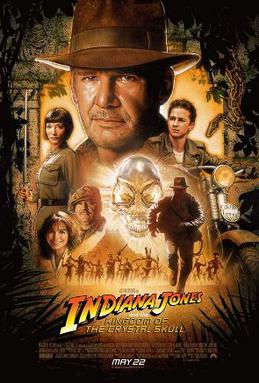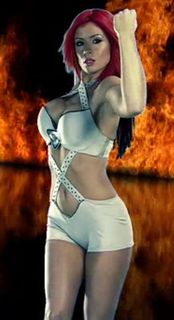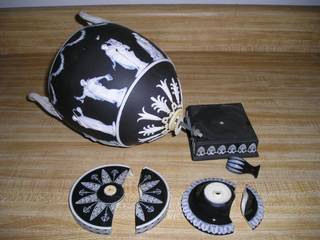If you want compulsive, intelligent alternative to the vacuous reality tat of Big Brother, The Hills, I'd Do Anything, etc, the The Wire is for you. I have been meaning to write about it for a very long time but every attempt doing so fell flat. Why? For the simple reason The Wire is the best television show I have ever seen. And by that I include all those great 80s kids' TV programmes. I am not joking. I cannot heap enough superlatives on to the show. It is at once funny, complex, gritty and heartbreaking. If I was writing a lengthy piece I wouldn't know where to begin. So I was very pleased to see a review appear in the latest issue of The Socialist from the pen of Michael Wrack. The comrade has written about it, so I don't have to:
When The Wire first started it could easily have been mistaken for just another 'cop show', and a particularly slow, dialogue-driven one at that.
The first series focused on one police detail, involving a case against a local drug kingpin. But the show was about much more. Avoiding simplistic distinction between good and evil it shows different aspects of 'the war on drugs'; we see the similar hierarchies of the police and the gangs, with the rank and file on both sides fighting the war for their bosses' careers.
The police working on the detail are constantly told to make things fast and simple, to lock up a few low-level drug dealers rather than build the wiretap and surveillance case needed to catch the people at the top.
Except we find out that the people at the top of the drug chain may not even be the top. The detail is shut down when, instead of just following the drug deals as instructed, they follow the money, revealing investments in local property and political donations.
Each series continues the story, while expanding to show the root causes of the drug problem. Closing down docks leads to a lack of work, and the inevitable pressures on communities.
We see city hall corruption, back-scratching and backstabbing, and the effects this has, when filtered down through local government policies, on the street level. Touching on people-trafficking, homelessness, urban gentrification, unions fighting for political influence, and much more, we're provided with a story of those left behind by capitalism; an America forgotten by the 'American dream'.
The Wire explains how the drug trade wholeheartedly follows the rules of capitalism. A high ranking drug dealer goes to an evening class at business school to learn the rules of the market.
A question constantly posed by the show is who these people could have become if they were born somewhere else, with different options. Does this serve as an excuse for the drug trade? Not exactly. Marxists believe people have free will, but we also believe the choices they make are shaped by the conditions they live under.
This is the central theme of series four, which changes focus again to put four school kids, and the failings of inner city education, at the centre of the show.
At the start of the series, as we watch them enjoy the summer, they could be the archetypal 'they may be poor but at least they're happy' TV children. As we find out more about them, we see how damaged they are.
Born into poverty-stricken communities, destroyed by drugs, they are children of addicts, or in one case a dealer and murderer. They are children brought up by other children and have all been, to varying degrees, abused; physically, psychologically or sexually.
We see them at a school that has all but given up on them, with the lure of the criminal life always so close. Far from admiring the local gangs, the kids fear them, even making up childish ghost stories about them to scare each other.
But when one of the kids faces a horrific problem at home he and his friends wonder who he could turn to for help. 'Snitching' to the police is immediately discounted; the motives of a local boxing coach are questioned, leaving a choice between his teacher and one of the gangsters. The results of his choice are far-reaching.
It is to the writers' credit that, despite the harsh issues dealt with, the show never once seems melodramatic. This is because no 'TV people' work on the show, the creators being a former crime journalist and a police officer-cum-school teacher. The show is so grittily real because it is based on reality, the real people and real events that they came across in their former jobs.
Critics have been lining up to hail The Wire as the best show on television. It may also be the most damning indictment of the world we live in found anywhere in popular culture.
The first series focused on one police detail, involving a case against a local drug kingpin. But the show was about much more. Avoiding simplistic distinction between good and evil it shows different aspects of 'the war on drugs'; we see the similar hierarchies of the police and the gangs, with the rank and file on both sides fighting the war for their bosses' careers.
The police working on the detail are constantly told to make things fast and simple, to lock up a few low-level drug dealers rather than build the wiretap and surveillance case needed to catch the people at the top.
Except we find out that the people at the top of the drug chain may not even be the top. The detail is shut down when, instead of just following the drug deals as instructed, they follow the money, revealing investments in local property and political donations.
Each series continues the story, while expanding to show the root causes of the drug problem. Closing down docks leads to a lack of work, and the inevitable pressures on communities.
We see city hall corruption, back-scratching and backstabbing, and the effects this has, when filtered down through local government policies, on the street level. Touching on people-trafficking, homelessness, urban gentrification, unions fighting for political influence, and much more, we're provided with a story of those left behind by capitalism; an America forgotten by the 'American dream'.
The Wire explains how the drug trade wholeheartedly follows the rules of capitalism. A high ranking drug dealer goes to an evening class at business school to learn the rules of the market.
A question constantly posed by the show is who these people could have become if they were born somewhere else, with different options. Does this serve as an excuse for the drug trade? Not exactly. Marxists believe people have free will, but we also believe the choices they make are shaped by the conditions they live under.
This is the central theme of series four, which changes focus again to put four school kids, and the failings of inner city education, at the centre of the show.
At the start of the series, as we watch them enjoy the summer, they could be the archetypal 'they may be poor but at least they're happy' TV children. As we find out more about them, we see how damaged they are.
Born into poverty-stricken communities, destroyed by drugs, they are children of addicts, or in one case a dealer and murderer. They are children brought up by other children and have all been, to varying degrees, abused; physically, psychologically or sexually.
We see them at a school that has all but given up on them, with the lure of the criminal life always so close. Far from admiring the local gangs, the kids fear them, even making up childish ghost stories about them to scare each other.
But when one of the kids faces a horrific problem at home he and his friends wonder who he could turn to for help. 'Snitching' to the police is immediately discounted; the motives of a local boxing coach are questioned, leaving a choice between his teacher and one of the gangsters. The results of his choice are far-reaching.
It is to the writers' credit that, despite the harsh issues dealt with, the show never once seems melodramatic. This is because no 'TV people' work on the show, the creators being a former crime journalist and a police officer-cum-school teacher. The show is so grittily real because it is based on reality, the real people and real events that they came across in their former jobs.
Critics have been lining up to hail The Wire as the best show on television. It may also be the most damning indictment of the world we live in found anywhere in popular culture.








